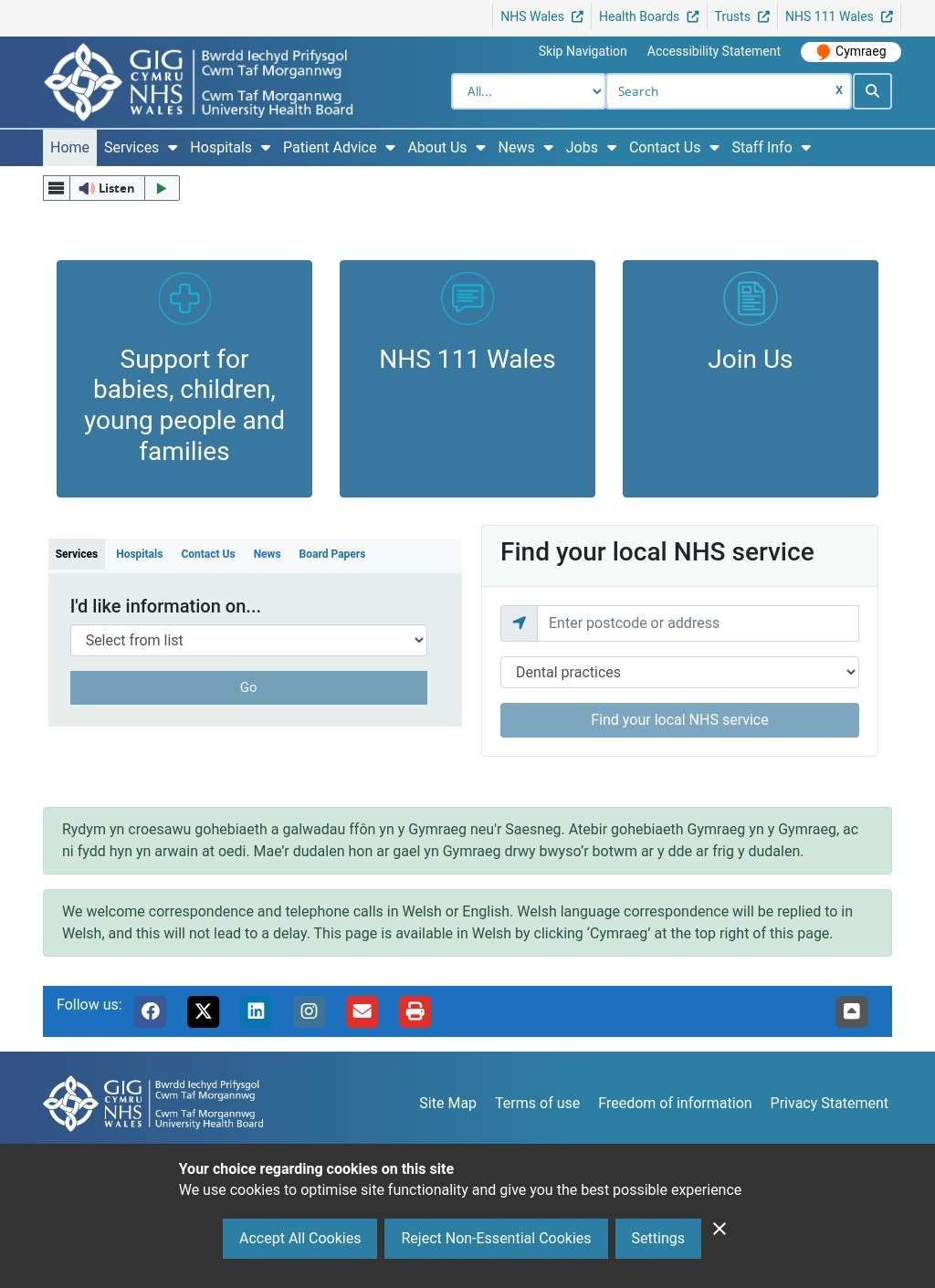Cwm Taf Morgannwg University Health Board delivers healthcare to 450,000 residents across three Welsh county boroughs – Bridgend, Merthyr Tydfil, and Rhondda Cynon Taf. Created in 2019 when Bridgend transferred from the former Abertawe Bro Morgannwg Health Board, this expansion recognized natural patient flows and community connections. The organization employs approximately 13,000 staff, with 80% living within the communities they serve, creating deep local connections between healthcare providers and patients.
Hospital services operate through a network of facilities designed to balance specialized care with local accessibility. Major hospitals include Royal Glamorgan Hospital in Llantrisant, Prince Charles Hospital in Merthyr Tydfil, and Princess of Wales Hospital in Bridgend. Each facility offers different specialties, ensuring comprehensive coverage across the region. The health board also maintains community hospitals providing rehabilitation, outpatient clinics, and minor injury units closer to where people live.
Primary care forms healthcare's foundation through GP practices, dental services, pharmacies, and optometry providers distributed across communities. The health board coordinates these independent contractors within NHS frameworks, ensuring consistent standards while maintaining local relationships. Modern appointment systems, extended hours, and collaborative working between practices help manage increasing demand. Preventive care initiatives address major health challenges through screening programs, immunizations, and lifestyle support services.
Mental health services reflect growing recognition of psychological wellbeing's importance to overall health. Community mental health teams provide support across all age groups, from child and adolescent services to older adult care. Crisis intervention operates 24/7, offering alternatives to emergency departments for mental health emergencies. Integration with physical health services acknowledges the interconnection between mental and physical wellbeing, breaking down traditional silos in healthcare delivery.
Population health challenges shape service priorities across Cwm Taf Morgannwg. The region faces higher deprivation levels than Welsh averages, with corresponding health inequalities. Life expectancy falls below national figures, while chronic conditions like diabetes and heart disease show elevated prevalence. Demographic projections indicate significant increases in over-65 populations by 2036, requiring service redesign to support aging communities with multiple health conditions.
Innovation drives service improvements despite resource constraints. The Academic Centre in Merthyr Tydfil trains future doctors in community medicine, addressing workforce needs while bringing fresh perspectives. Value-based healthcare initiatives focus resources on interventions delivering greatest patient benefit. Digital transformation includes electronic patient records, telemedicine options, and data analytics to improve care coordination. The new Clinical Research Centre at Royal Glamorgan Hospital enables patient access to cutting-edge therapies.
Organizational culture centers on values co-created with staff and communities through extensive consultation. "We listen, learn and improve," "We treat everyone with respect," and "We all work together as one team" guide daily operations. These values shape everything from clinical decision-making to staff recruitment. World Values Day 2020 marked their official launch, with ongoing work embedding them throughout the organization. Regular staff recognition programs celebrate employees living these values.
Strategic planning addresses immediate pressures while building sustainable healthcare for future generations. The CTM2030 strategy outlines pathways for integrated health and social care, recognizing that health extends beyond hospital walls. Partnerships with local authorities, third sector organizations, and communities multiply impact. The health board's university status supports research, education, and innovation – ensuring services evolve with medical advances. Financial pressures require difficult prioritization decisions, yet commitment to free healthcare at point of need remains absolute, honoring NHS founding principles while adapting to 21st-century challenges in this proud Welsh valleys region.
